Although the markets were rallying for the better part of the last two months, the technical picture has changed. To demonstrate this, I'm going to use line charts to filter out some of the noise.
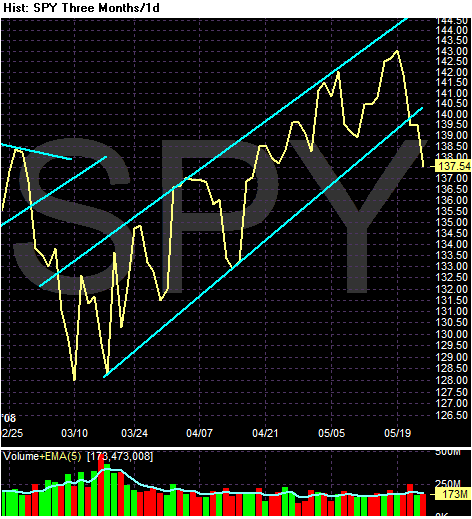
The SPYs have clear broken their support line.
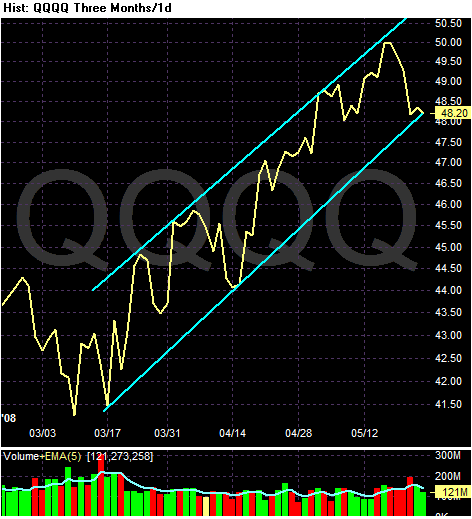
The QQQQs are just barely hanging on.
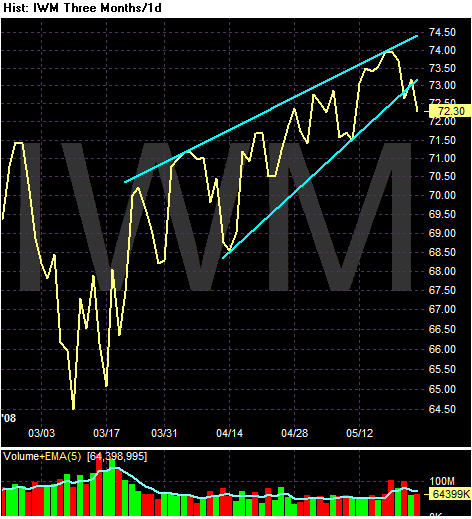
The IWMs have broken support, and
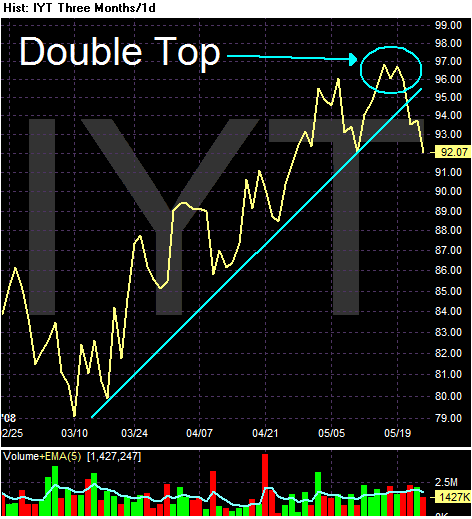
The transports have also dropped through support.
Now, let's look at the candle charts and SMAs to see what they say.
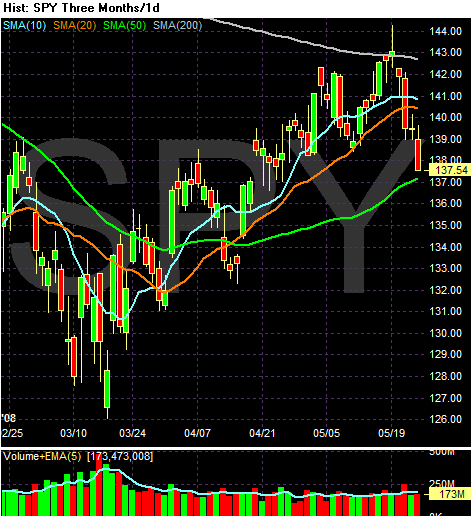
On the SPYs, notice the following:
-- Prices hit the 200 day SMA and retreated
-- Prices have moved through the 10 and 20 day SMA.
-- The 10 and 20 day SMA have turned horizontal
-- The SMAs are still in a very bullish alignment, with the shorter SMAs above the longer SMAs, BUT
-- Pries are now below the two shorter SMAs which will drag them down.
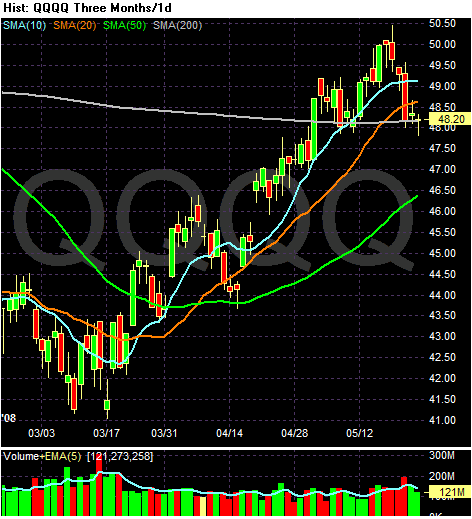
On the QQQQs, notice the following:
-- Prices are below the 10 and 20 day SMA and
-- Prices are right on top of the 200 day SMA
-- The 10 day SMA has turned sideways
-- The SMAs are still in a very bullish alignment, with the shorter SMAs above the longer SMAs
-- However, with prices below the 10 and 20 day SMAs, the shorter SMAs will be coming down.
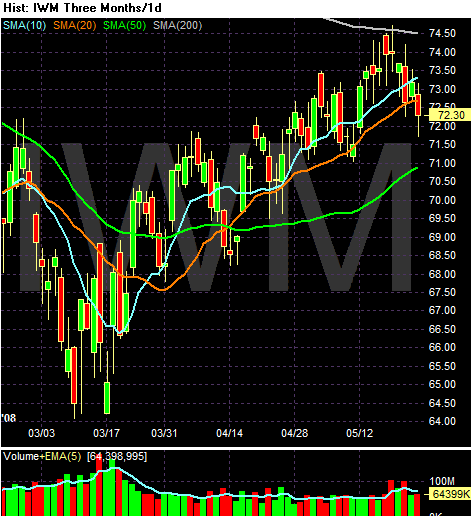
On the IWMs, notice the following:
-- Prices are below the 10 and 20 day SMA, which will pull these SMAs lower
-- Prices approached the 200 day SMA and couldn't break through upside resistance
-- The shorter SMAs are still in a very bullish configuration with the shorter SMAs above the longer SMAs.
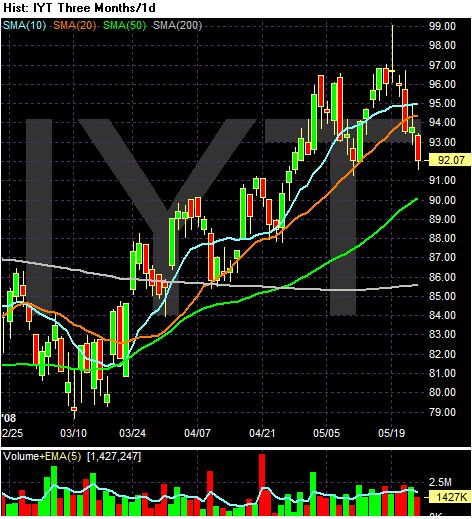
On the transports (IYTs), notice the following:
-- Prices fell through the 10 and 20 day SMAs
-- The SMAs are still in a very bullish alignment, with the shorter SMAs over the longer SMAs
-- Prices are also above the 200 day SMAs.
Regarding last week's charts, notice the following:
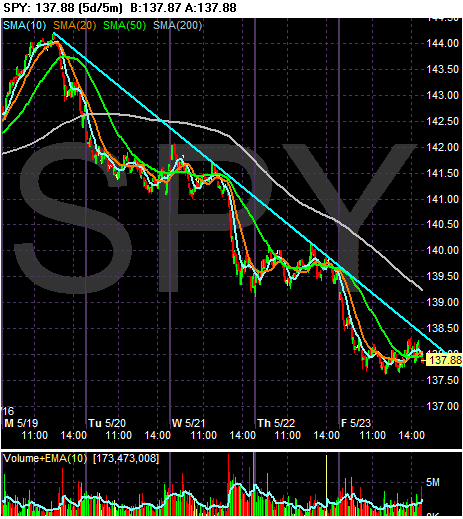
The SPYs were in a clear, week-long downward trajectory.
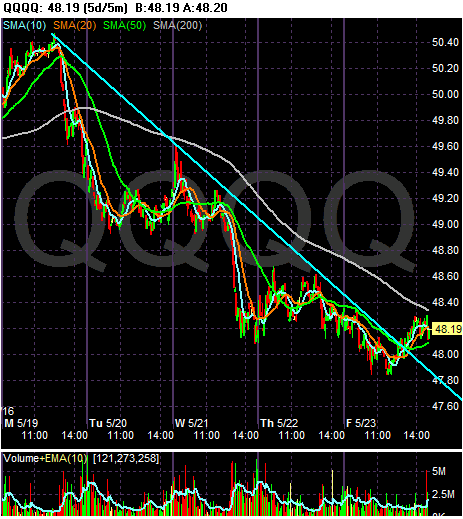
The QQQQs were also in a clear downward trajectory, but broke through upside resistance about halfway through the trading day on Friday.
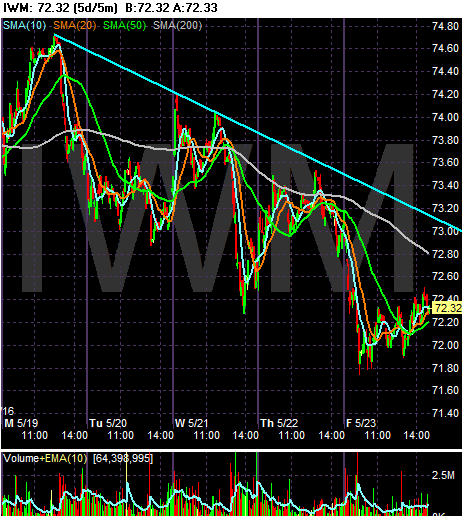
The IWMs were also in a clear downward trajectory.
So -- what led to this bug turn of events? The Federal Reserve summed it up in the minutes of their latest meeting. Here's the opening paragraph of the recently released minutes from the April 29-30 meeting:
The information reviewed at the April meeting, which included the advance data on the national income and product accounts for the first quarter, indicated that economic growth had remained weak so far this year. Labor market conditions had deteriorated further, and manufacturing activity was soft. Housing activity had continued its sharp descent, and business spending on both structures and equipment had turned down. Consumer spending had grown very slowly, and household sentiment had tumbled further. Core consumer price inflation had slowed in recent months, but overall inflation remained elevated.
Let's see how accurate the Fed's statements were. The Fed's statements are italicized.
indicated that economic growth had remained weak so far this year
According to the Bureau of Economic Analysis, GDP grew at a .6% pace in the fourth quarter of 2007 and the first quarter of 2008. And that assumes that inflation is correctly calculated.
Labor market conditions had deteriorated further
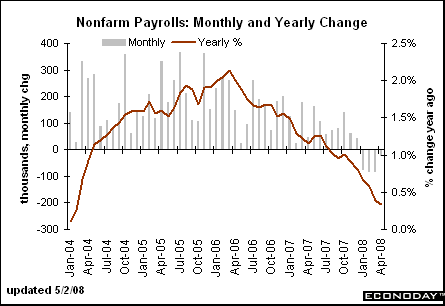
Year over year job growth has been deteriorating for some time and
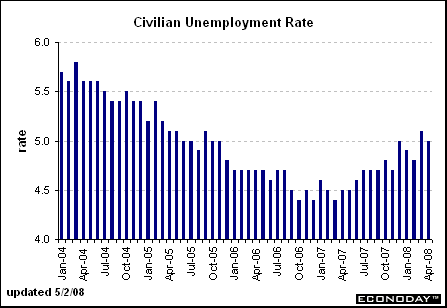
The unemployment rate is ticking up.
manufacturing activity was soft
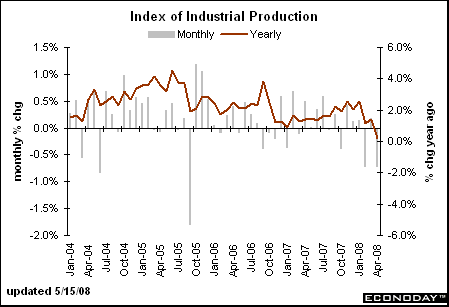
On a year over year basis, industrial production has been dropping since the end of last summer.
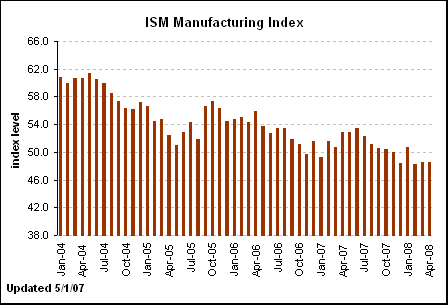
And the ISM manufacturing index has been below 50 for a few months, indicating a contraction in manufacturing activity.

The Philadelphia Fed survey has been weak for some time, as has

Empire state survey
Housing activity had continued its sharp descent
From the WSJ:
Prices fell an average of 1.7% nationwide in the first quarter from the final three months of 2007, according to the Office of Federal Housing Enterprise Oversight. The decline was the largest in the index's 17-year history. The government index, which is seasonally adjusted and based on data for home purchases, had dropped 1.4% in the prior quarter. Compared with a year earlier, home prices dropped 3.1% in the first quarter.
.....
Other nationwide indexes show steeper declines. The S&P/Case-Shiller index, which includes a broader variety of mortgages and which showed a nationwide drop of 8.9% in the fourth quarter from a year earlier, is set to release first-quarter figures next week.
From the Fed again:
business spending on both structures and equipment had turned down
According to the latest GDP report from the Bureau of Economic Analysis, business investment in "structures" decreased 6.7% last quarter and investment in software and equipment decreased .7%.
Consumer spending had grown very slowly
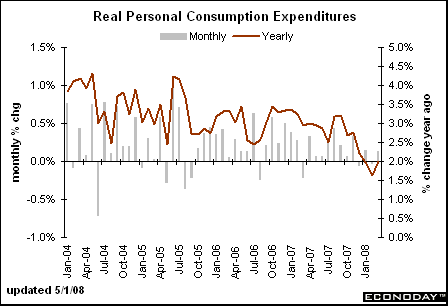
While personal consumption expenditures increased on a year over year basis last month, notice they are still hovering at the lowest levels in 4 years. Now -- ask yourself what record prices are the pump will do to this number?
household sentiment had tumbled further
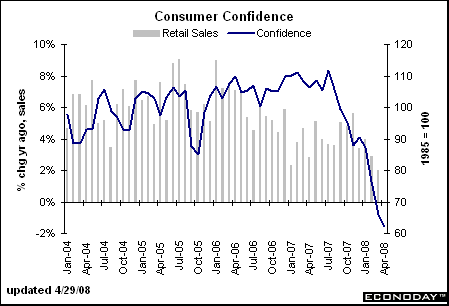
Consumer confidence has fallen off a cliff, as has
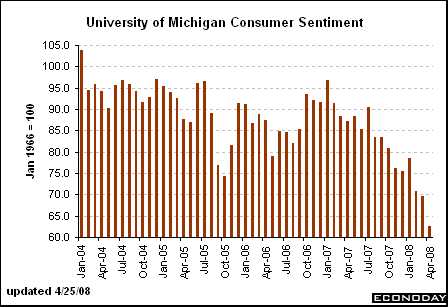
Consumer sentiment
Core consumer price inflation had slowed in recent months, but overall inflation remained elevated
There is good news here.
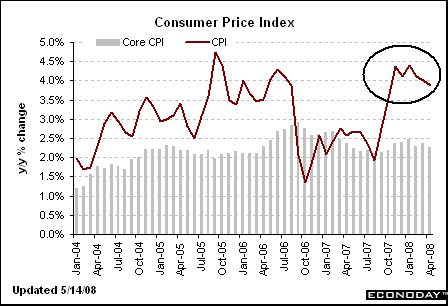
On a year over year basis, CPI as steaded and perhaps is starting to come down a bit, as is
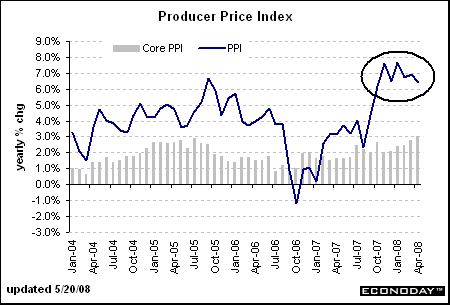
PPI
But that's the only good news in the Fed's statement.
To sum up, the Federal Reserve said, quite simply, that the economy is in terrible shape. In addition, the Fed lowered their growth rate projections.